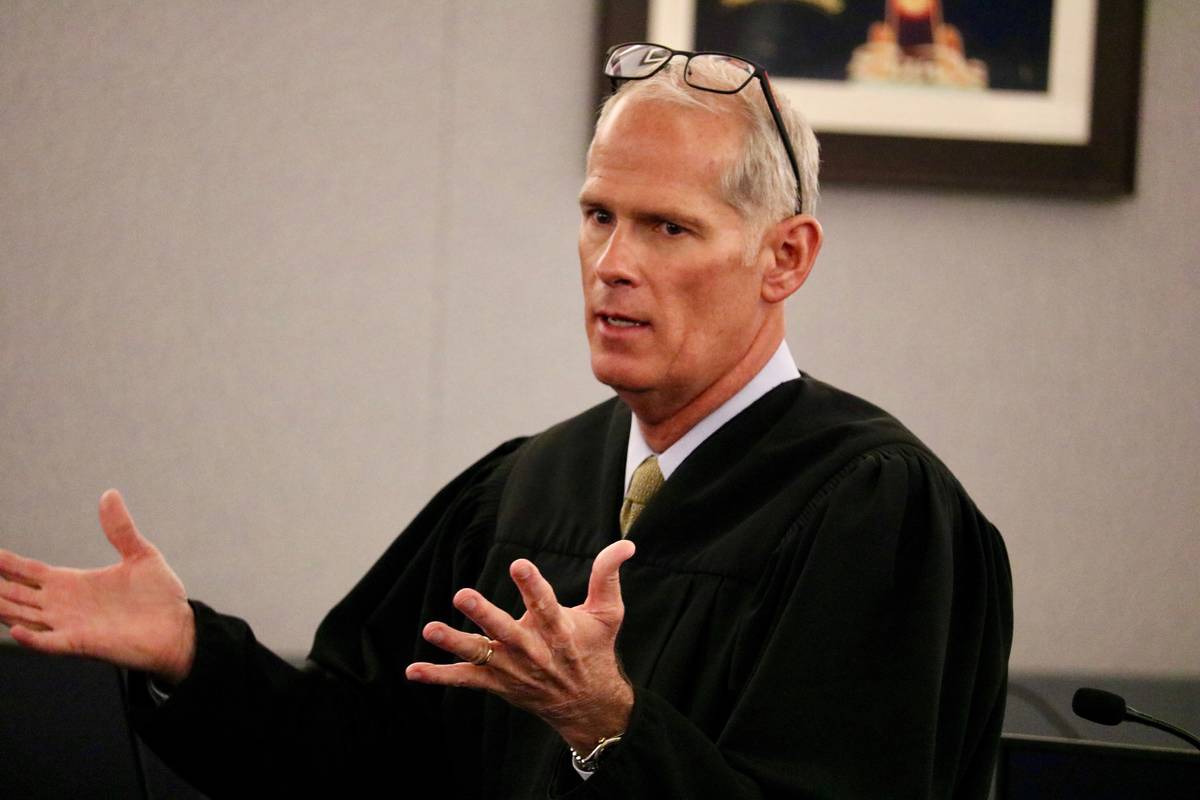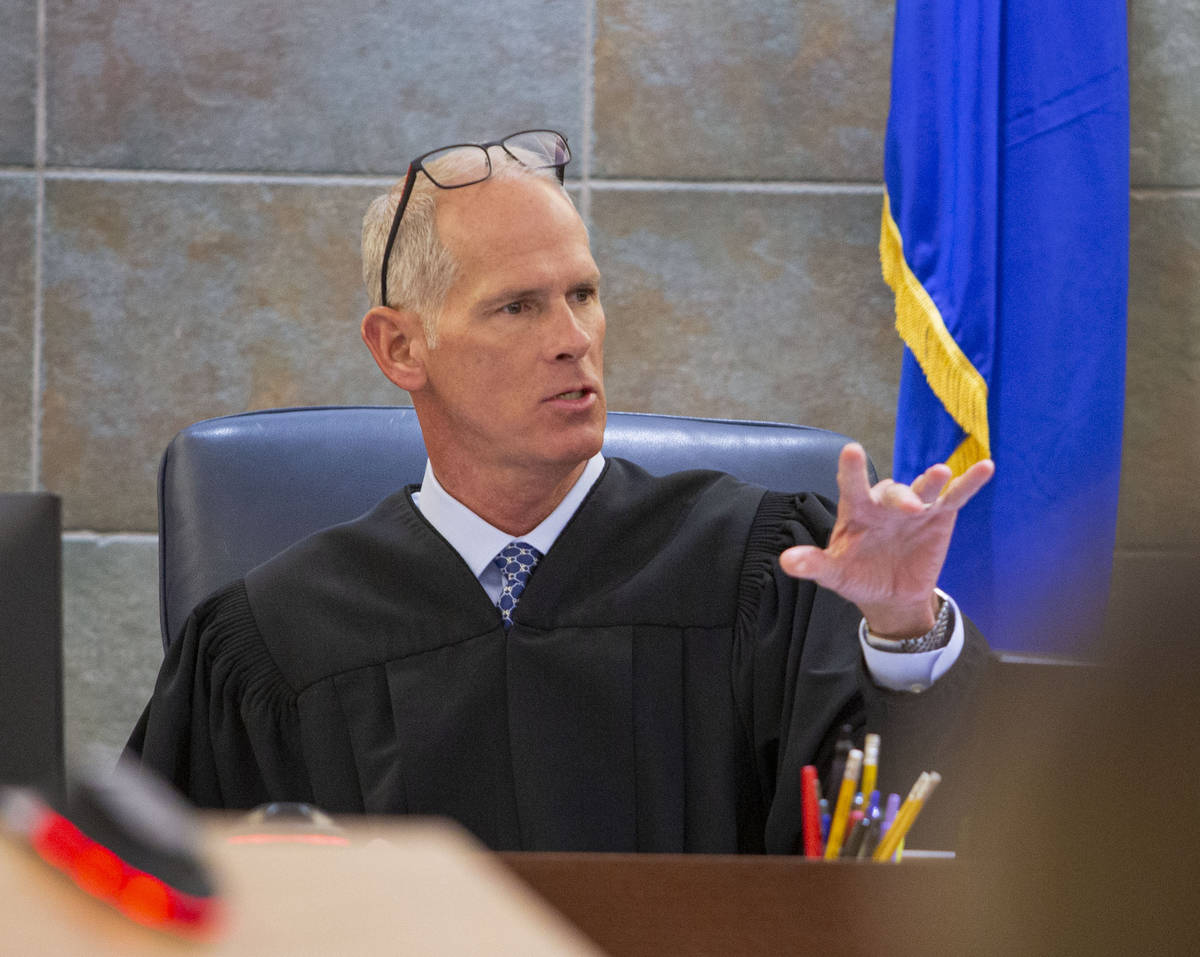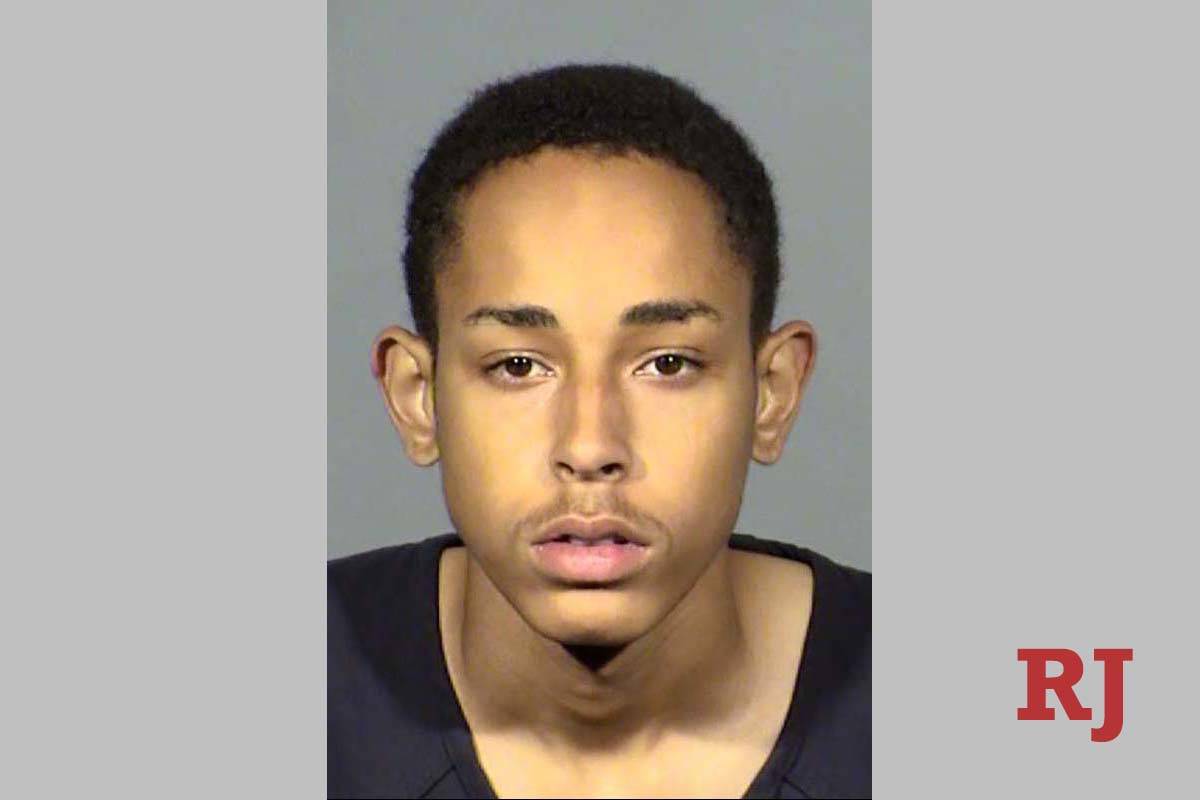Las Vegas judges analyze bail levels in coronavirus pandemic
In the midst of the coronavirus outbreak and a recent Nevada Supreme Court decision, criminal defense attorneys have begun to flood the Las Vegas justice system with requests for new bail hearings.
They are asking for clients to be given a chance at freedom in a shuttered community, even those facing the most serious criminal charges. In some cases, judges have significantly reduced the amount of money needed for suspects to get out of jail.
This month, District Judge Douglas Herndon referenced COVID-19 and dropped bail from $500,000 to $50,000 for a teenager charged with murder.
Citing the pandemic, defense attorney Ryan Helmick had argued that 18-year-old Sakai French, charged in the September 2018 killing of 18-year-old Dalvin Brown on the campus of Canyon Springs High School, has asthma and therefore is at high risk of contracting the virus and developing more severe symptoms.
“We feel that it is dangerous to have French sit in jail with a higher risk than others to get infected,” Helmick wrote in a court brief. “Given the country’s restraints on travel as well as the condition to stay home, it is likely that French would not be considered a flight risk or a danger to the community at this time.”
The teen was released to house arrest the day after Herndon reduced his bail.
‘Legitimate concern’
Helmick told the Las Vegas Review-Journal that he had asked French and his family about his medical conditions after the new coronavirus started to spread in Clark County. Helmick, like other defense lawyers, pointed to the constitutional ban on cruel and unusual punishment, while adding that an outbreak behind bars could lead to valley hospitals being overwhelmed with inmates.
“I’m not just filing this motion as an angle to try to get him out,” Helmick said. “I’m filing it because it’s a legitimate concern. I’m not going to get up there and use (the virus) as an excuse.”
As the number of COVID-19 cases continued to spike in Clark County, the judge also cut bail down to $100,000 for 21-year-old Ivan Andrews, charged with murder and attempted murder. His bail had been set at $250,000 before the outbreak.
But for the statewide shutdowns, Andrews’ family might be able to help him post bail, according to his lawyer, Clark Patrick. Andrews’ father and girlfriend lost their jobs because of the outbreak, Patrick said.
Lawyers for jailed defendants started to file briefs on bail shortly after recognizing how Gov. Steve Sisolak’s statewide shutdown could stall the already slow wheels of justice in a pared-down system.
Ivette Maningo and Patricia Palm represent Terrell Stewart, who faces the death penalty after being charged with two counts of murder. They foresaw further delays in his 3-year-old case and knew that preparing it for trial would become even more difficult in a pandemic.
“The current circumstances in which Nevada and the United States are operating because of the global pandemic, COVID-19, should be considered in determining whether Mr. Stewart’s custody status should be reassessed,” they wrote in late March. “The defense is unable to do the necessary file reviews, investigation and mitigation work at this time, which will likely lead to continuance of the trial date.”
On April 9, District Judge Michael Villani, who had released Stewart’s co-defendant on his own recognizance, set bail for Stewart at $750,000, an amount that his lawyers said was unattainable.
That same day, as the Supreme Court established new guidelines for cash bail, another wave of bail motions hit the valley’s court dockets.
Justices, led by James Hardesty in a 6-1 decision, ruled that jailed defendants should receive prompt bail hearings in which the burden is on prosecutors to show why cash bail is necessary and that judges must state their reasons for setting bail and “take into consideration the defendant’s financial resources.”
Right to ‘reasonable bail’
Judges have the discretion to set a bail that would ensure a defendant’s appearance in court and protect the community.
“The amount of bail that is reasonable will depend on the circumstances of the individual,” the high court wrote. “However, because the right of an individual to reasonable bail before trial is a fundamental one … bail must not be in an amount greater than necessary to serve the State’s interests.”
Clark County District Attorney Steve Wolfson said his office will “respond to each motion on a case-by-case basis.”
The court’s decision calls for adversarial bail hearings “soon after arrest,” meaning prosecutors can’t ask a judge to keep high cash bails without argument from a defense lawyer.
“The courts are just needing to make better records,” Chief Deputy District Attorney Marc DiGiacomo said. “And they should make better records. If you’re depriving somebody of liberty, they should probably know why their liberty is being deprived.”
Last week, Herndon ordered a $250,000 bail for 30-year-old Joshua Martinez, who had been held without bail since his July arrest.
Herndon said he was “concerned enough” about the allegations in the slaying of Martinez’s roommate, Santiago Valdez, and Martinez’s criminal past, which includes a sex crime conviction in California, not to release him on his own recognizance.
However, Herndon and a team of judges overseeing murder cases at the trial court level also have rejected many of the more than a dozen bail motions heard during the pandemic.
Meanwhile, judges will continue to weigh such decisions, balancing the safety of the community with the rights of the accused, during a health crisis that keeps much of the court system on hold.
After the Supreme Court decision was handed down, veteran defense attorney Robert Langford, with the aid of a prison reform group, delivered documents to anyone in the Clark County Detention Center who could be eligible for a new bail hearing.
“Everybody over there is not being held legally,” Langford said. “I am saying we should push the envelope to bring into perspective what an appropriate bail setting is. The only way to do that is to hold these hearings and get judges used to evaluating these situations.”
Contact David Ferrara at dferrara@reviewjournal.com or 702-380-1039. Follow @randompoker on Twitter.













































